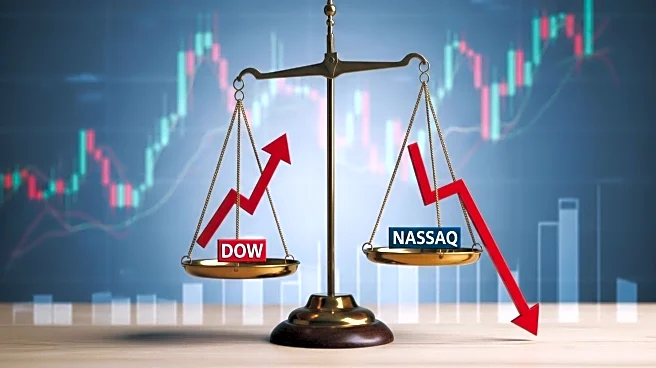What's Happening?
The US stock market experienced volatility on Tuesday as trade tensions between the United States and China intensified. The Dow Jones Industrial Average managed to rise by 0.4%, while the S&P 500 fell by 0.2% and the Nasdaq Composite slid by 0.8%. The market was influenced by President Trump's threats to halt US purchases of Chinese cooking oil products, and China's retaliatory measures, including sanctions on US-linked units of a South Korean firm. Additionally, Fed Chair Jerome Powell's speech at an economic conference added to the market dynamics, as he suggested potential future rate cuts.
Why It's Important?
The ongoing trade tensions between the US and China continue to have significant implications for global markets and economic stability. The stock market's reaction reflects investor concerns about the potential for an all-out trade war, which could disrupt supply chains and impact corporate earnings. The situation also highlights the interconnectedness of global economies and the influence of political decisions on market performance. The Fed's stance on interest rates is crucial for investors, as it affects borrowing costs and economic growth prospects.
What's Next?
Investors will closely monitor upcoming meetings between President Trump and Chinese leader Xi Jinping, as any agreements or escalations could further impact market sentiment. The earnings season for major banks and corporations will also be a focal point, providing insights into how businesses are navigating the current economic climate. Additionally, the Federal Reserve's policy decisions will be scrutinized for indications of future rate cuts, which could influence investment strategies and economic forecasts.









